7 Ways You're Being Tracked In The Modern World: Is Privacy In The 21st Century Possible?
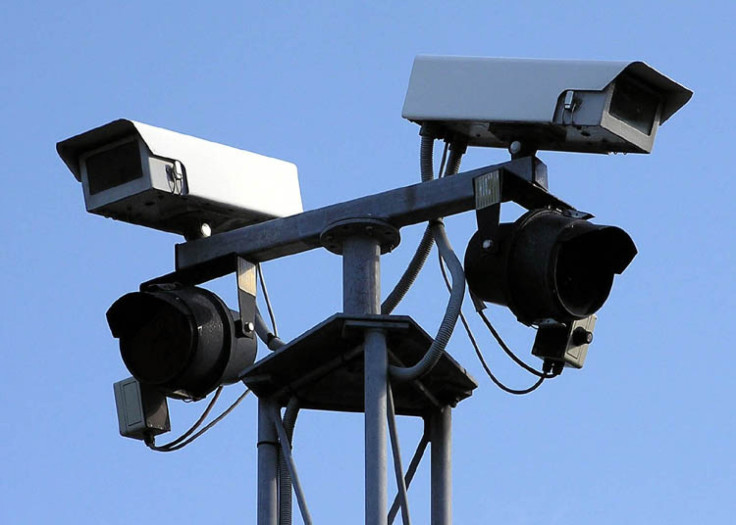
Privacy is dead. Or so they say. While we do our best to keep parts of our lives away from prying eyes, it’s becoming increasingly difficult to stay “off the grid.”
Whether it’s companies tracking your user habits, or the government tracking your calls, chances are you are being tracked one way or another. Take a look at seven ways you’re being tracked in the modern world.
7. Surveillance Cameras and Closed-Circuit Television (CCTV)
They’re absolutely everywhere. From speeding cameras, red-light cameras at intersections, and even entire surveillance networks dedicated to detecting suspicious activity, monitoring devices are watching us. In the case of New York City, the surveillance technology is so advanced that abandoned packages and bags are flagged immediately. The technology now even allows the cameras to lock onto particular subjects wearing certain clothing or scan license plates for numbers logged in police databases. According to a report on NBC's “Today” show, this technology can track cars and notify police when those flagged vehicles enter New York City and display a history of every time their plate has been scanned by cameras. On the other side of the globe, there are at least 1.85 million CCTV cameras in the United Kingdom, according to a Guardian report.
6. Automatic License Plate Readers, or ALPR
Using high-speed cameras, automatic license plate readers are present on many roadways and municipalities. The readers can snap a picture of your license plate, along with the time and location, retaining the information in databases, sometimes indefinitely, according to a report released by the American Civil Liberties Union, or ACLU, on July 17. Regardless of whether the car in question is suspected to be tied to a car theft or other crime, this information is captured and stored, according to the report. People with access to the database could assemble detailed information of where you have ever driven.
This particular technology isn’t limited to law enforcement use. Parking enforcement and vehicle repossession companies also use the technology to find and repossess vehicles or install boots on vehicles with outstanding unpaid parking violations. You can take a look at the ACLU's findings here.
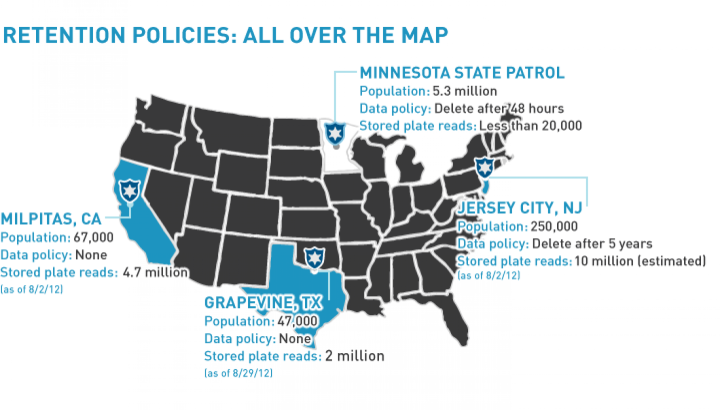
5. Cookies
We're not talking chocolate chip. Browser cookies have been around since the early '90s. When you visit a website, by default the website will set tracking cookies, which aid in compiling long-term records of an individual’s browsing history. If you’re wondering how those supposedly relevant ads pop up on the pages you tend to visit, chances are it's the work of tracking cookies.
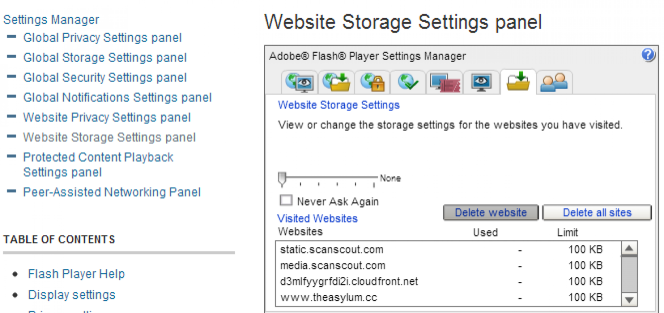
Even if you set your browser to refuse third-party tracking cookies, companies have another way of tracking you. Using files left by plug-in supercookies, also known as zombie cookies or flash cookies, marketing, advertising and analytics firms can continue to track you even after you’ve cleared your browser cache. However, it is possible to remove this information through a website interface provided by Adobe.
4. Search Engines
This one is sort of a given. Most of the major search engines keep track of trends on a general scale. However, if you search and browse while signed in to your Google account, Google will tailor its ads to your searches. Between searches and browsing habits, it’s actually kind of scary how much they know about you. Fortunately, you can opt out of the tracking at the bottom of the ad-preferences page.
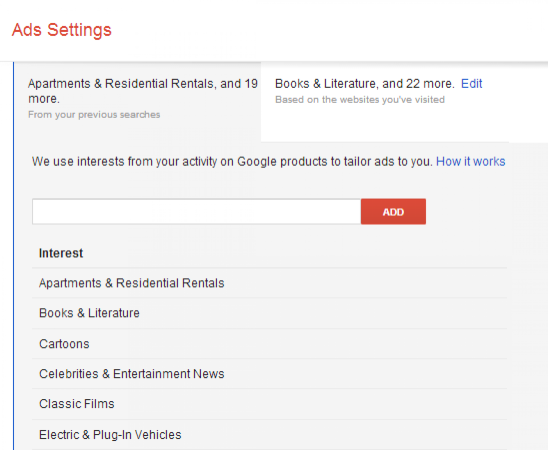
If you want to avoid any tracking, consider using alternative search engines such as DuckDuckGo or at least enabling the “do-not-track” option and disabling third-party cookies through the settings of your browser.

3. Email
They might not have humans reading your messages, but that doesn’t mean free email services won’t use information from your emails to serve you relevant ads. However, in the case of Gmail, they tend not to serve ads on emails about “catastrophic news” or emails with “sensitive information, such as race, religion, sexual orientation, health, or sensitive financial categories,” according to their ad policies.

2. GPS
Every smartphone on the market has Global Positioning System, or GPS, technology installed these days. From driving directions, to setting up reminders, there are plenty of legitimate ways to utilize the technology. While you typically have to opt in to be tracked, it’s quite surprising how much some services rely on GPS to serve you “relevant” content and information. You can control what applications use location services via your phone’s settings, and it will usually prompt you for permission to use location information when you first run an app. Take a little time to read what the app is asking permission for before you hit that “yes” button.
1. Facebook and Social Networks
Nobody is “asking” to be watched. But we’ve come to the point where we willingly give social media sites a detailed profile of all our habits, interests and likes. Not to mention photos. Facial recognition on the popular social networking site has improved so much that it can easily spot faces on even untagged photos. Frankly, it's a gold mine of information, and we're filling it.
If you’re looking to stay off the grid, it probably isn’t a good idea to “check in” and share every place you go to during the day. As for making your own home a place to “check in,” that probably isn’t a good idea either.
Bonus: PRISM
The NSA’s spying program, PRISM, captured the world’s attention when the Guardian published secret slides detailing the secret surveillance program that allegedly has access to several communications platforms including but not limited to Skype, Facebook and Gmail.
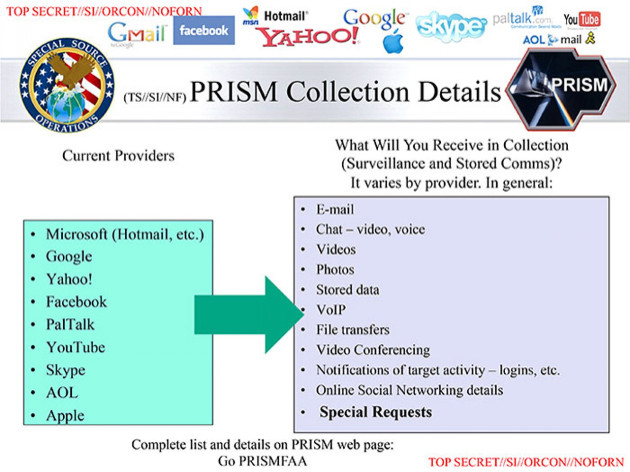
While controversy about such spying has been running high since Snowden blew his whistle, some of the first evidence of such a program surfaced in 2006. Former AT&T technician Mark Klein provided evidence to the Electronic Frontier Foundation and Wired of a secret room in an AT&T switching center allegedly used to spy on internet communications traveling through that particular hub.
After taking a step back and realizing how much we are being tracked today, there are many questions to ask. Was all of this inevitable? Is there any way to really take our privacy back in the modern world?
Let us know your thoughts in the comments.
© Copyright IBTimes 2025. All rights reserved.






















